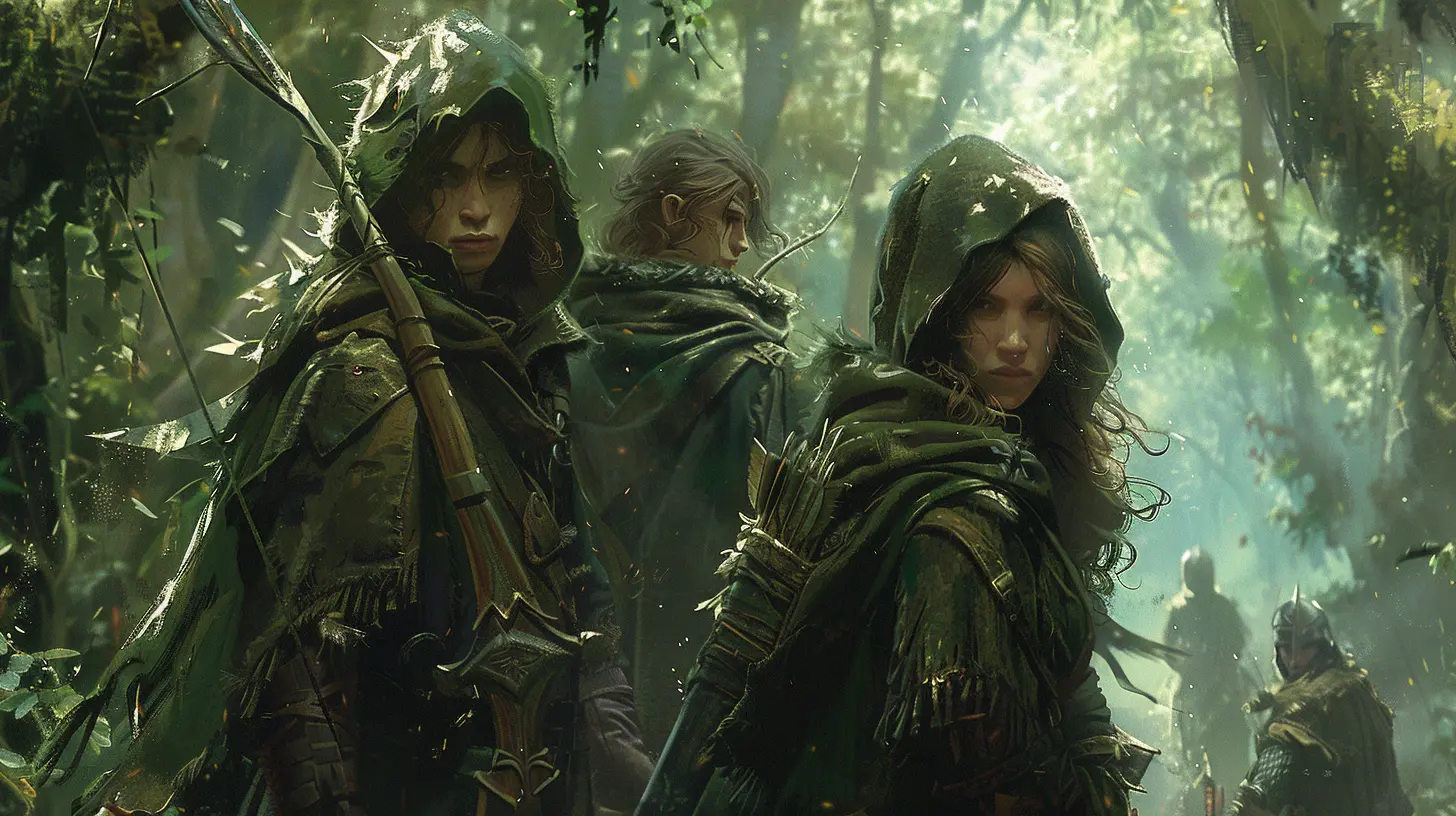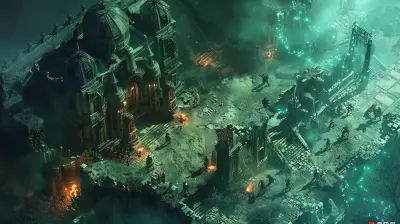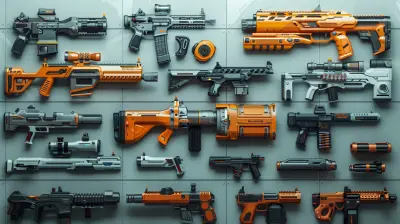22 April 2025
We've all been there. You’re diving headfirst into an epic fantasy adventure—whether it's a book, game, or movie—and then, right on cue, in walks a sidekick. Maybe it's the goofy comic relief who somehow trips over every plot point. Or perhaps it's the loyal companion who always has your back, deflecting arrows or delivering much-needed words of wisdom. But have you ever stopped to wonder: what’s the real deal with sidekicks? Are they truly indispensable allies, or are they just cannon fodder to raise the stakes? Let’s dive in and explore the role of sidekicks in fantasy adventures, from the loyal dog at the hero’s heels to the magical being you didn’t know you needed.
What Makes a Great Sidekick?
A sidekick's purpose goes beyond simply standing in the hero’s shadow—well, at least the good ones do. They serve as critical catalysts for emotional depth, plot movement, and even comic relief. But what separates the dynamic partners from the forgettable tagalongs? Let’s break it down.1. Loyalty Like No Other
At their core, great sidekicks are the embodiment of unwavering loyalty. Think Samwise Gamgee from The Lord of the Rings. Would Frodo have made it to Mount Doom without Sam? I highly doubt it. Sam wasn’t just there to carry Frodo’s bags (and let’s be real, Frodo did pack like he was going on a year-long vacation). He was Frodo’s moral compass, his shoulder to cry on, and his ultimate lifeline when things got rough. That kind of ride-or-die loyalty makes a sidekick unforgettable.2. Filling In Gaps
Not all heroes are perfect. In fact, they’re often full of flaws—and that’s where a good sidekick shines. They complement the hero’s strengths and weaknesses, filling in the spaces where the protagonist may fall short. For instance, in video games, your sidekick will often wield abilities or knowledge you don’t have. In The Witcher 3, Dandelion’s charm and wit perfectly balance out Geralt’s stoic, brooding demeanor. Together, they’re a dynamic team that feels complete.3. A Dose of Personality
Nothing kills a story faster than a bland, one-dimensional character—and that goes for sidekicks, too. The best sidekicks bring their own quirks to the table. Whether it’s a sassy AI like Cortana in Halo or the sarcastic banter of characters like Daxter in Jak and Daxter, their unique personalities keep the story fresh and engaging.
Sidekicks as Emotional Anchors
Let’s be honest: fantasy adventures are a rollercoaster of emotions. From the crushing defeats to the triumphant victories, a great sidekick helps you feel those moments more deeply. Why? Because they’re living it too.Have you ever noticed how many sidekicks are written to be relatable? They’re often the ones who say what the hero (and by extension, we as the audience) might be thinking. Take Ron Weasley from Harry Potter. His reactions to the magical world are often humorous, but they also mirror the awe, fear, and questions we might have. He’s the audience's surrogate, grounding us in the fantastical chaos.
And when the stakes get high, sidekicks are usually the ones who tether the hero (and us) back to reality. Think about Hodor from Game of Thrones. His tragic story arc was heartbreaking not just because of what he went through, but because we felt connected to him as a loyal companion who was willing to sacrifice everything.
Are Sidekicks Just Cannon Fodder?
Now, let’s address the elephant in the room: are sidekicks sometimes just expendable plot devices? Unfortunately, the answer is yes. In some stories, sidekicks exist solely to heighten the drama or heroism of the protagonist. That’s when they step into the realm of “fodder” territory.For example, how many times have you seen a sidekick get killed off just to motivate the hero? It’s a trope as old as time. While it can be effective storytelling, it also risks reducing the sidekick to a mere tool rather than a fully fleshed-out character. The key difference between a sidekick we mourn and one we forget comes down to how they're written. If they’re given depth, agency, and emotional stakes, their loss can hit us like a ton of bricks. But if they’re just there to die, it feels hollow.
Sidekicks in Gaming: Allies or Assets?
The gaming world has taken the concept of sidekicks to new heights. Unlike movies or books, games often let you interact with your sidekick directly, making their presence feel even more personal. But here’s the thing: not all gaming sidekicks are created equal.The Good
Let’s tip our hats to gaming sidekicks who get it right. Take Ellie from The Last of Us. She’s not just an extra body in Joel’s mission to survive. She’s a multi-dimensional character with her own motivations, fears, and skills. Her dynamic relationship with Joel elevates the entire game, shifting her firmly into the “friend” category.The Bad
On the flip side, you’ve got sidekicks who are—how do I put this nicely?—baggage. We’ve all played that one game where your AI-controlled buddy keeps walking into walls or triggering traps, making you wonder if they’re actively trying to sabotage your mission. (Cough Ashley from Resident Evil 4.) At their worst, these sidekicks feel less like companions and more like an annoying chore.The Dynamic Duo
But sometimes, the magic happens when a game balances your sidekick’s independence with their utility. In Bioshock Infinite, Elizabeth isn’t just along for the ride; she actively helps you, tossing health packs or ammo your way when you’re in a tight spot. Those small moments of teamwork make her feel like a true partner.The Evolving Role of Sidekicks
In recent years, creators have started to push the boundaries of what a sidekick can be. Gone are the days when every sidekick was a bumbling goofball or a throwaway character. Instead, we’re seeing sidekicks take on greater roles that sometimes even rival the hero's.Take Atreus from God of War (2018). He’s more than just Kratos’ son—he’s an integral part of the narrative and gameplay. His growth throughout the story mirrors his father’s, creating a bond that feels authentic and earned.
Similarly, in Horizon Forbidden West, we see a shift in how secondary characters are written. They're given depth, backstories, and motivations that make them feel like living, breathing individuals—not just NPCs who exist to serve the protagonist.
The Verdict: Friends or Fodder?
So, where do sidekicks land on the spectrum between “friends” and “fodder”? The truth is, it depends. A great sidekick is a true companion, an emotional anchor, and sometimes even a hero in their own right. But when done poorly, they can feel like little more than narrative throwaways.Whether they’re the Sam to your Frodo, the Ellie to your Joel, or the Pikachu to your Ash, sidekicks play a pivotal role in shaping the stories we love. They’re not just there to stand in the background or take a bullet for the hero. At their best, they’re as vital to the journey as the protagonist themselves—reminding us that even in the grandest adventures, no one truly goes it alone.




Rosanna McGowan
Great article! You’ve highlighted an essential aspect of storytelling in fantasy games. Sidekicks can enhance gameplay and deepen emotional connections, but their impact often depends on strong character development. It’d be interesting to see examples of sidekicks that have truly elevated their main characters’ journeys. Keep it up!
April 23, 2025 at 4:03 PM